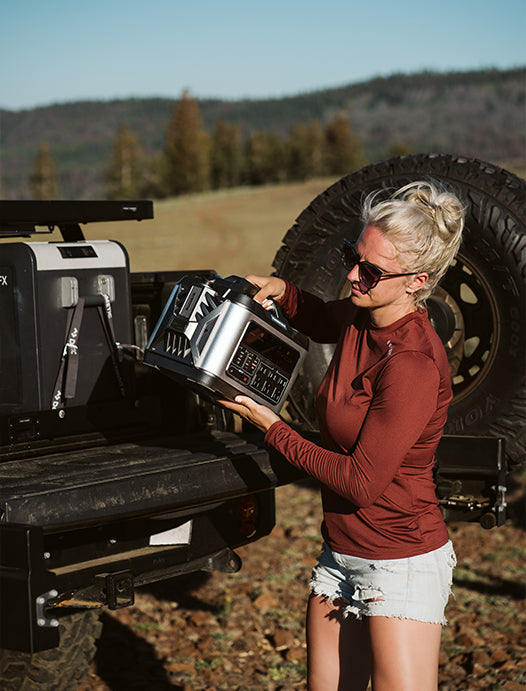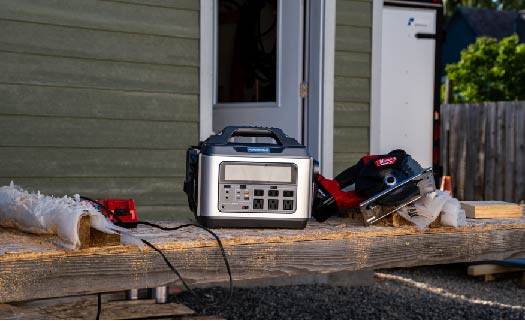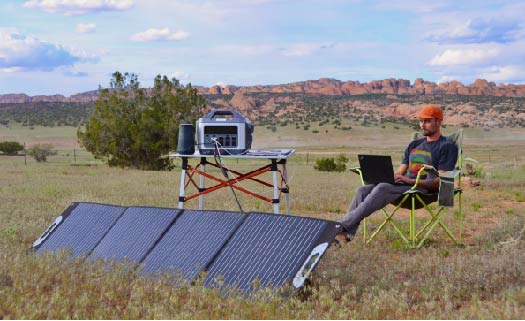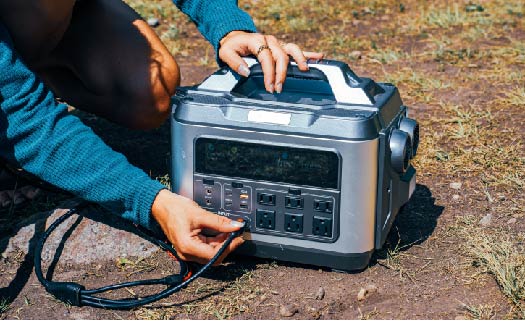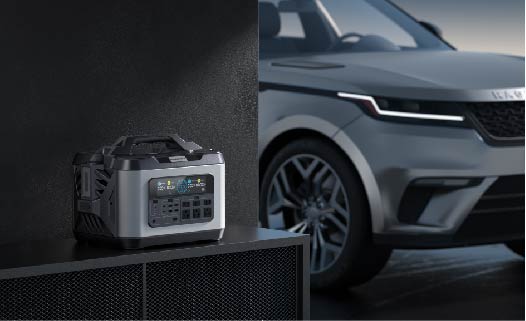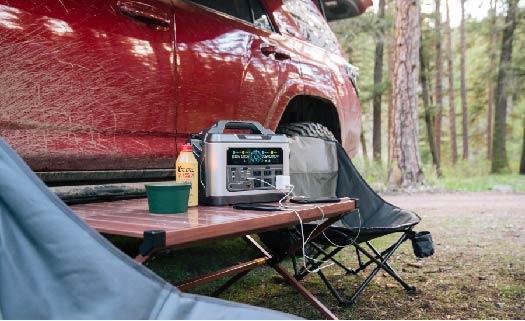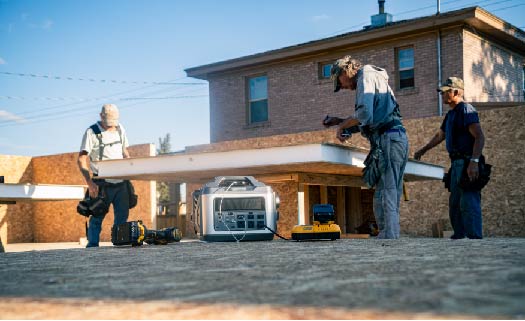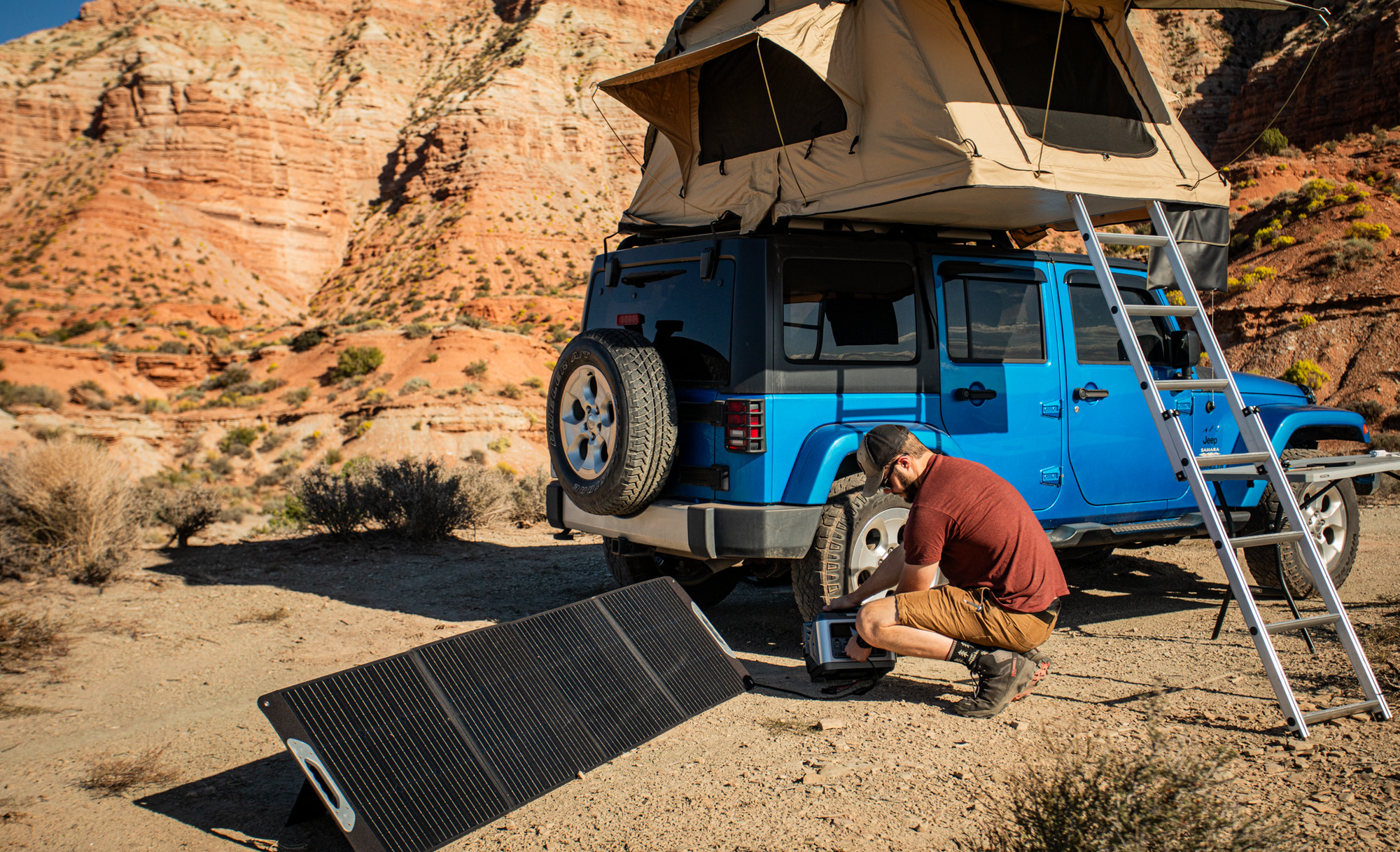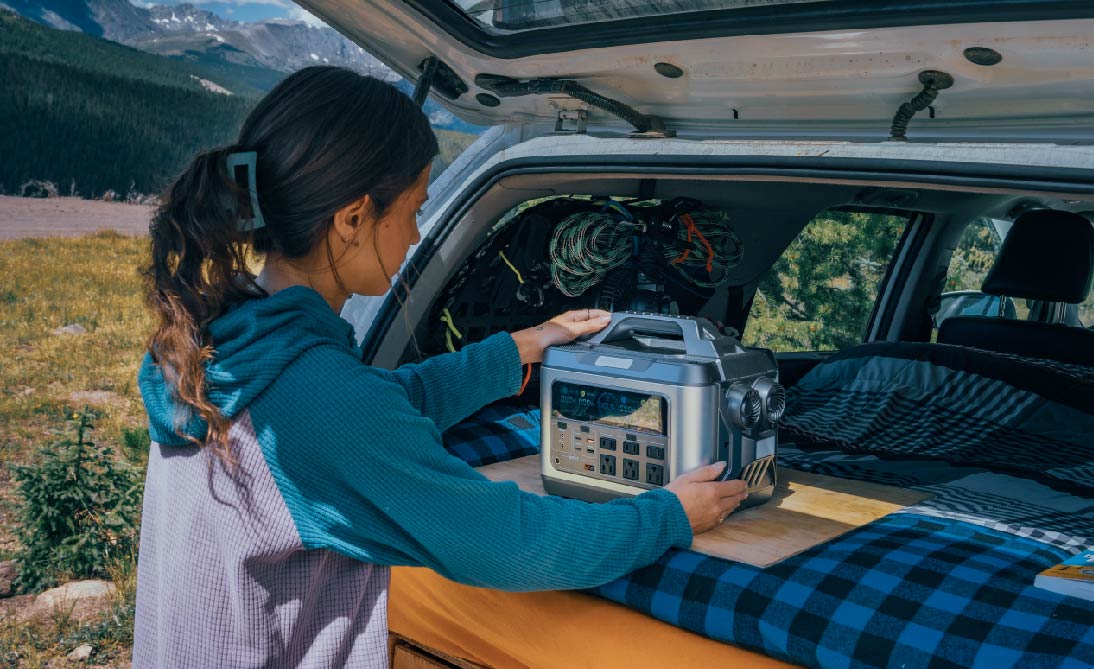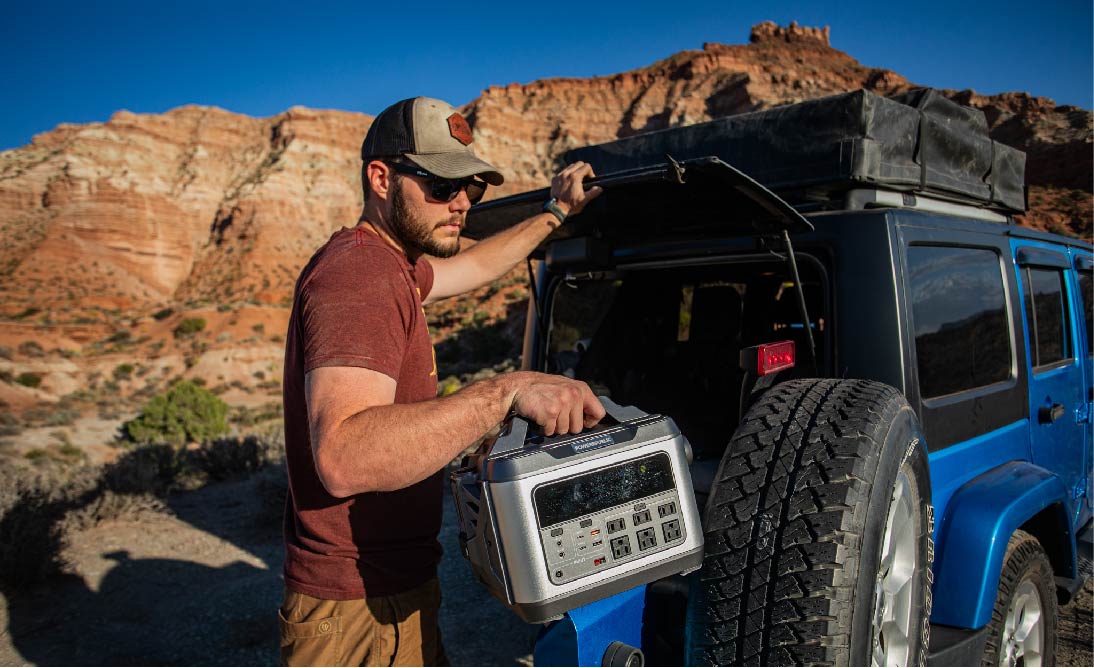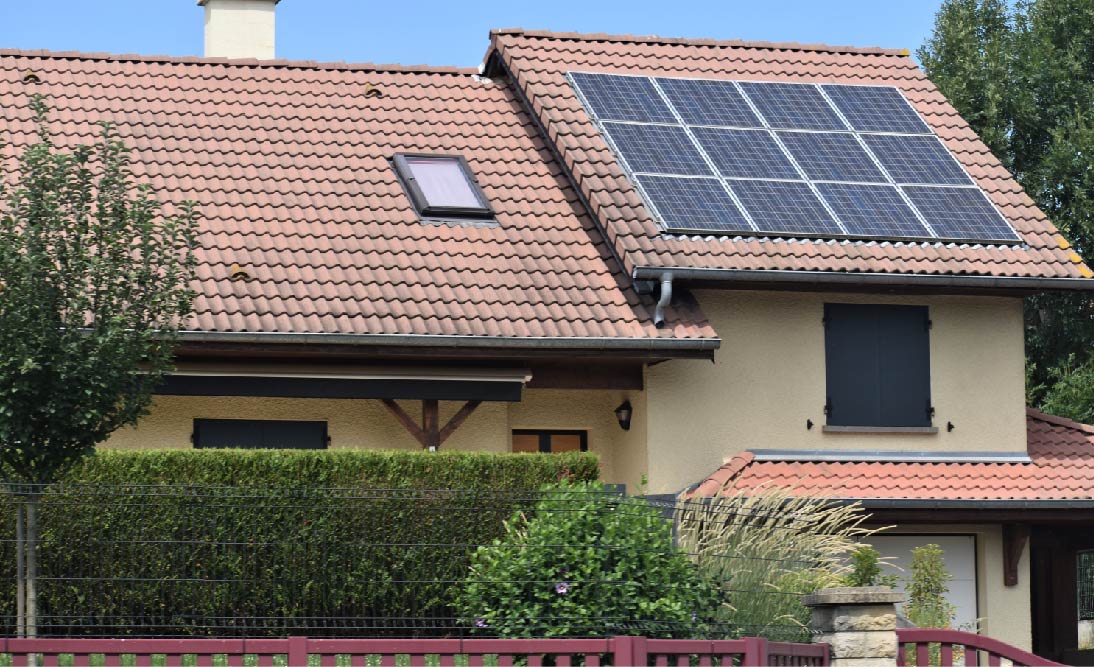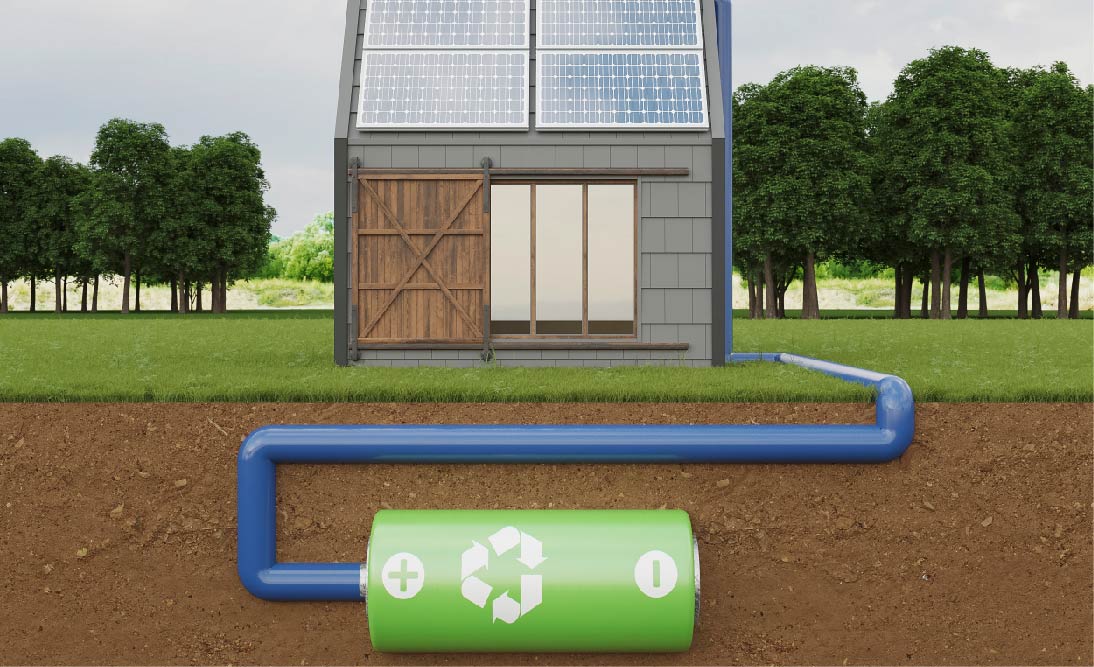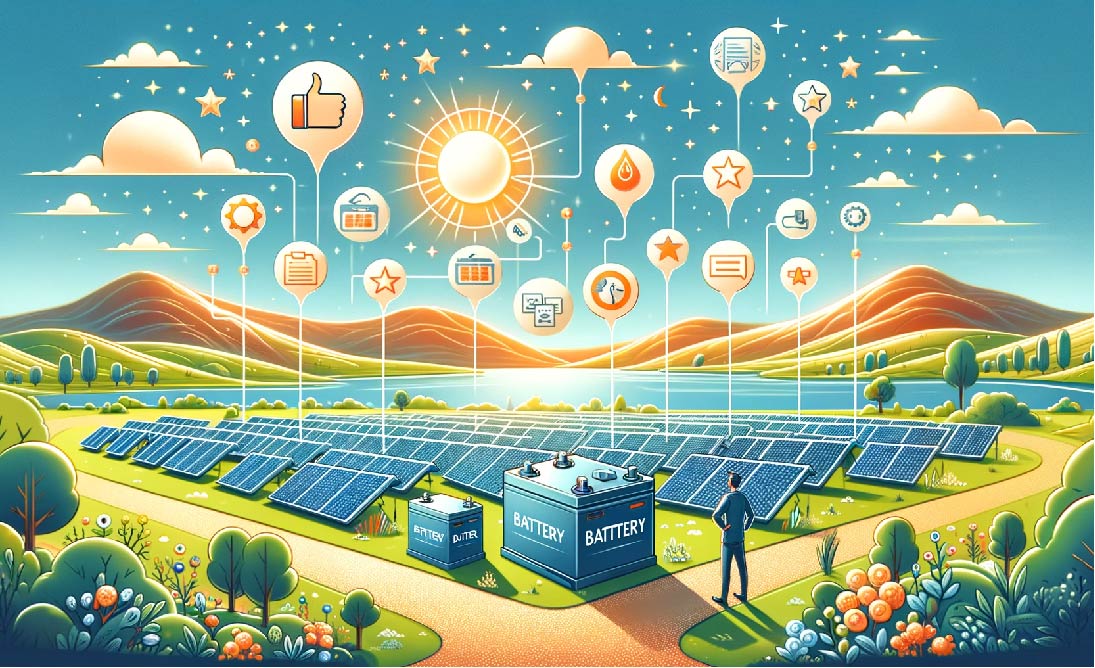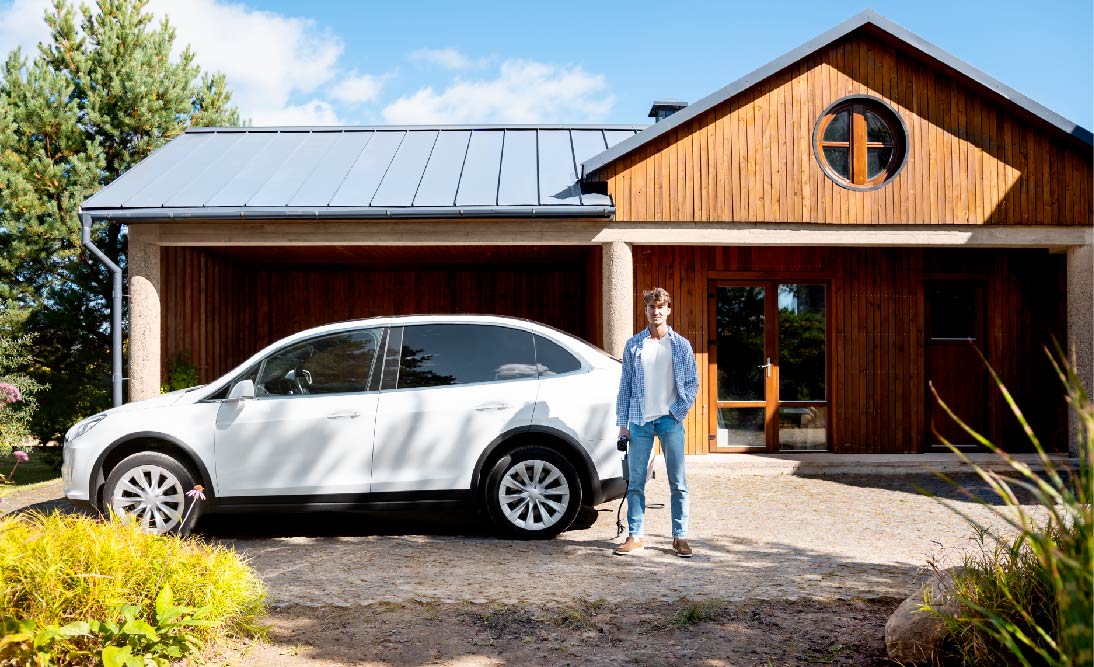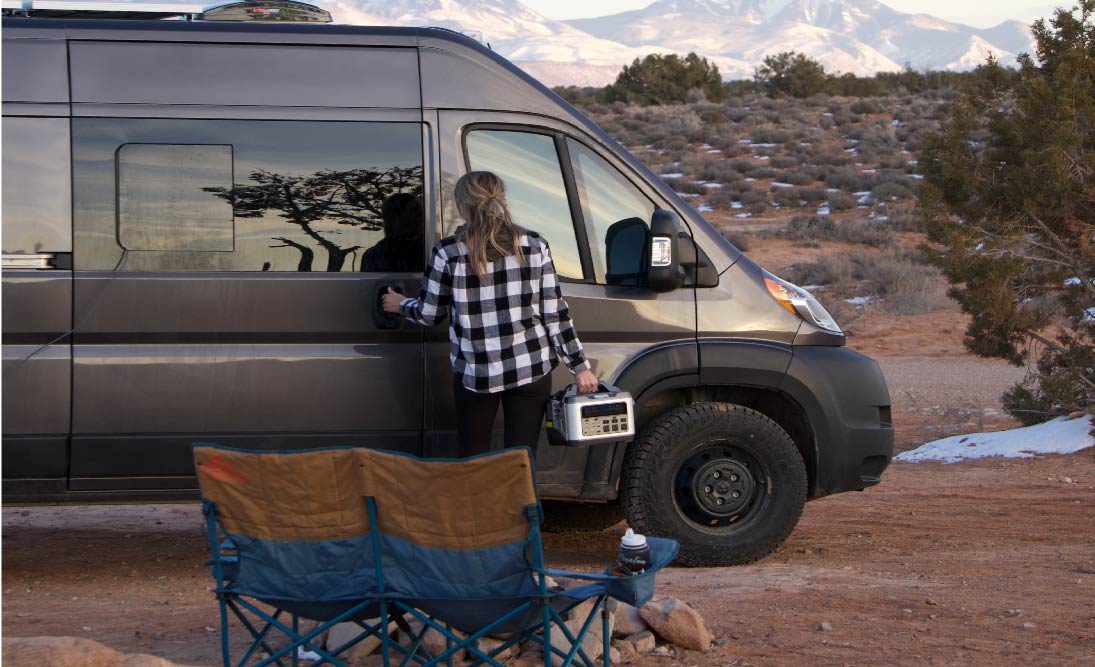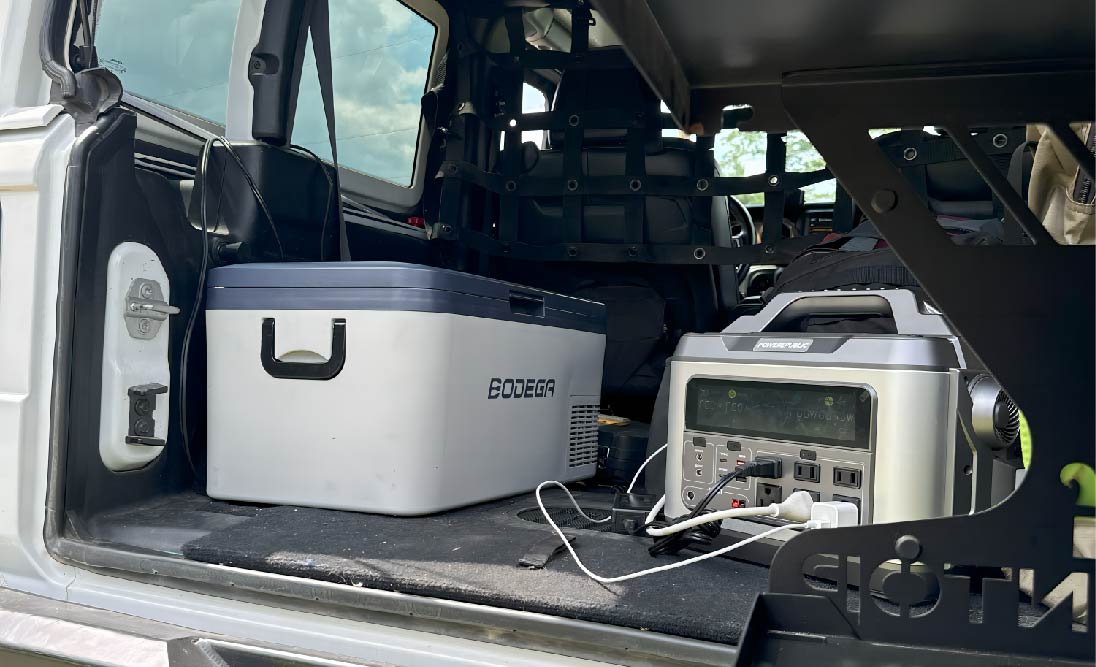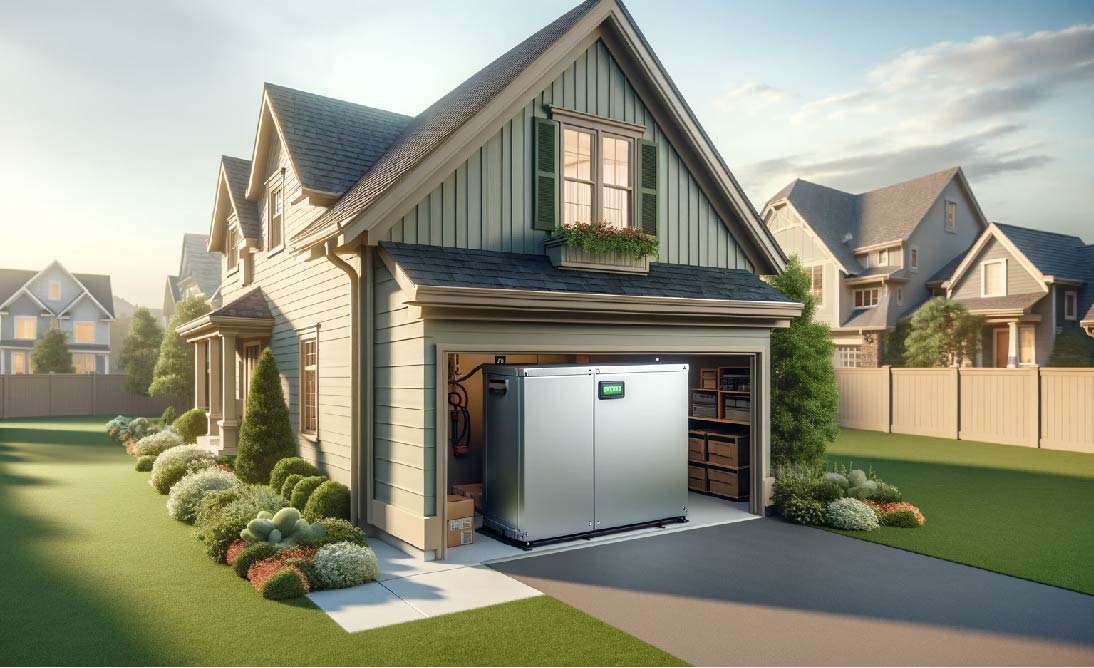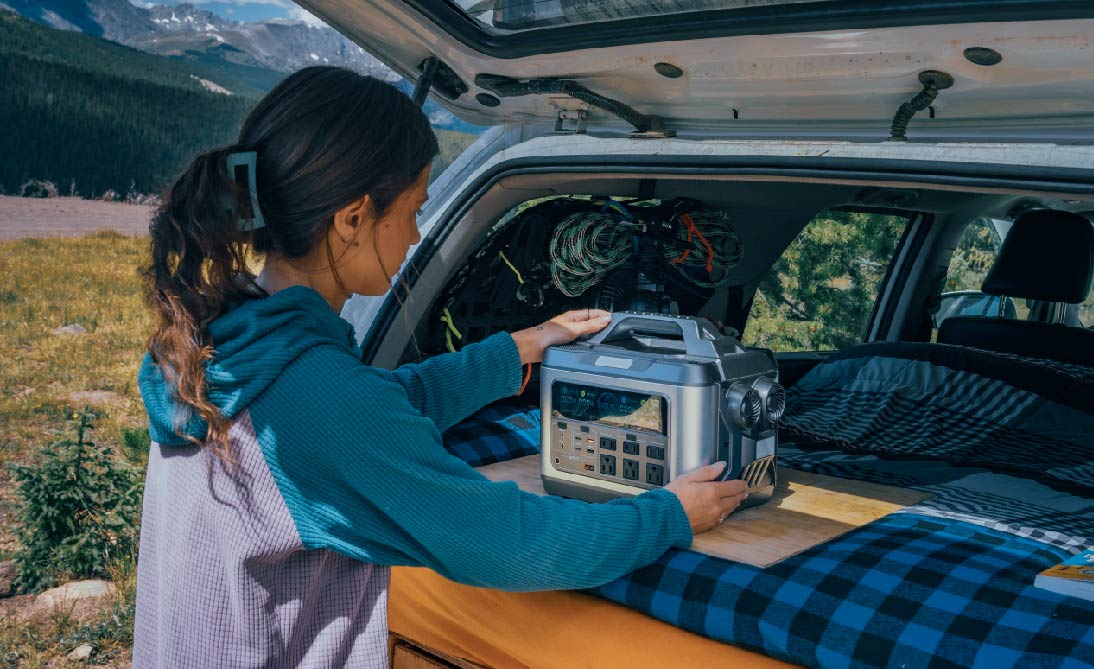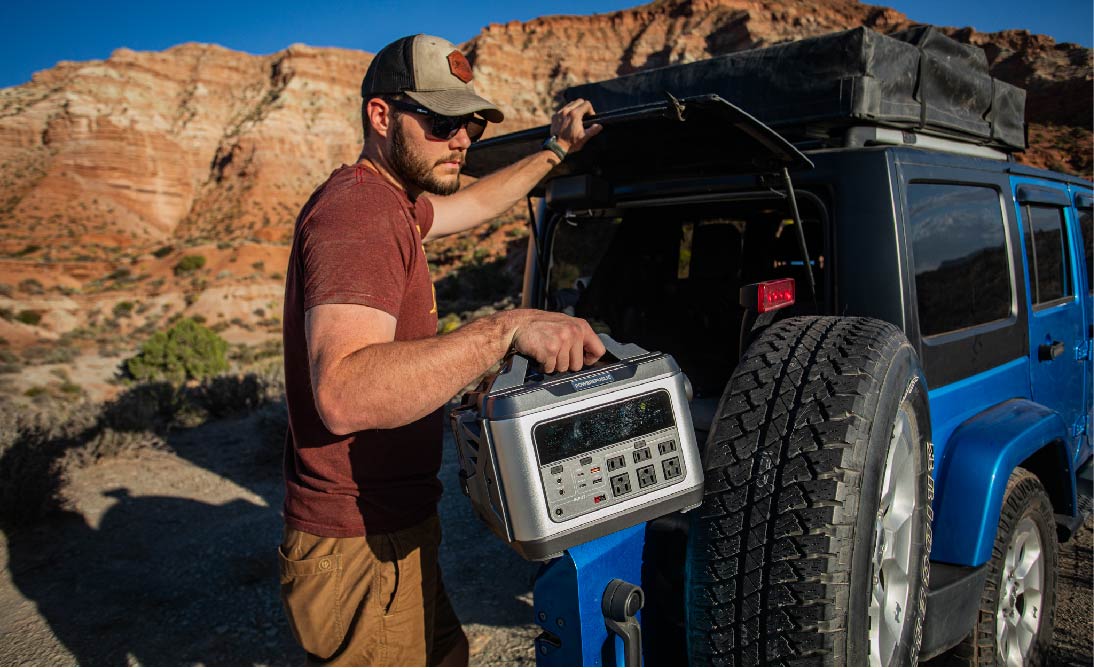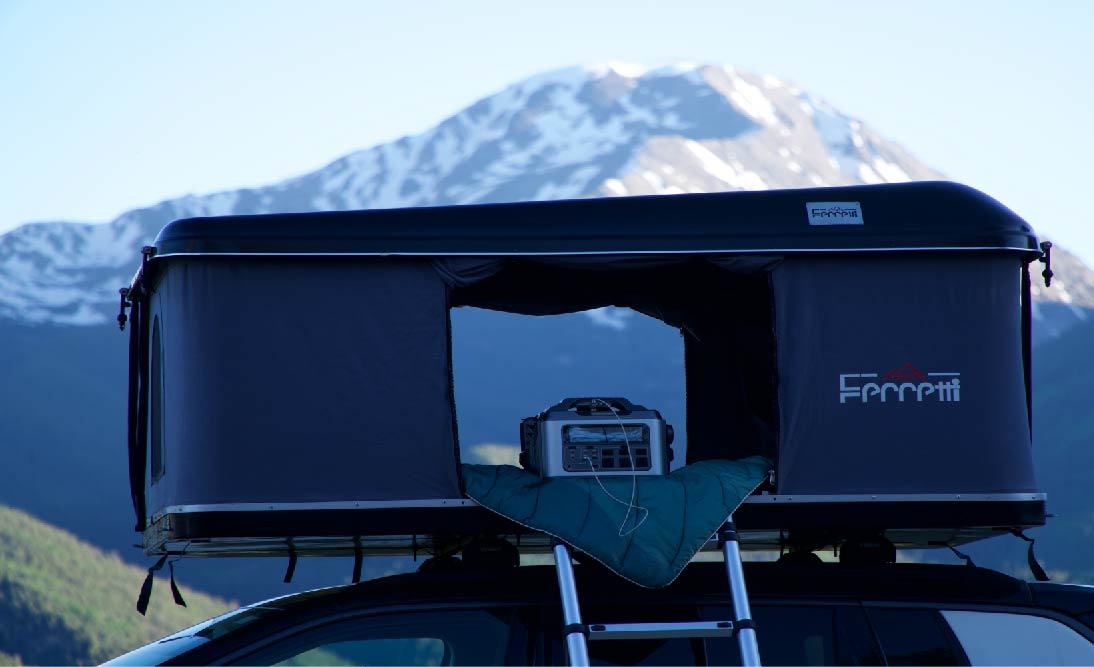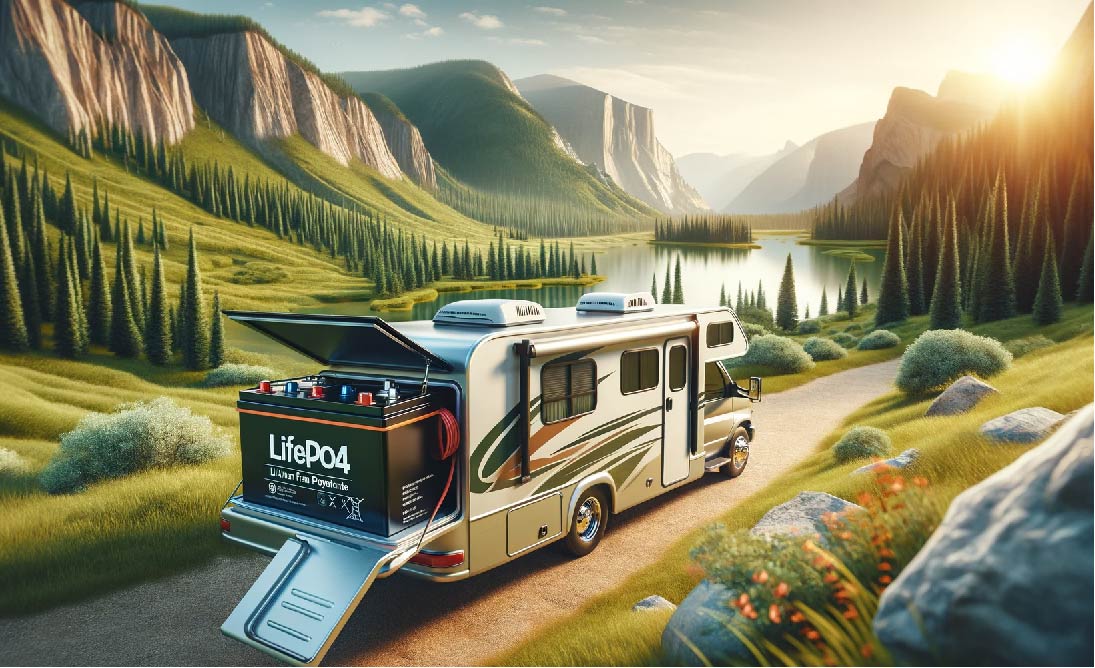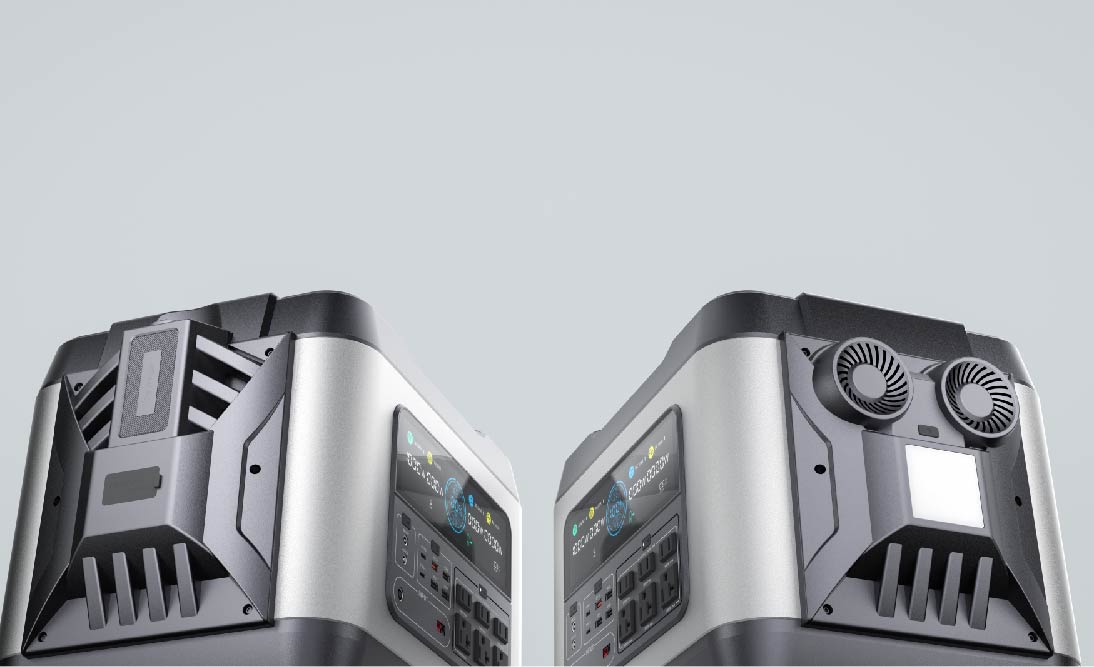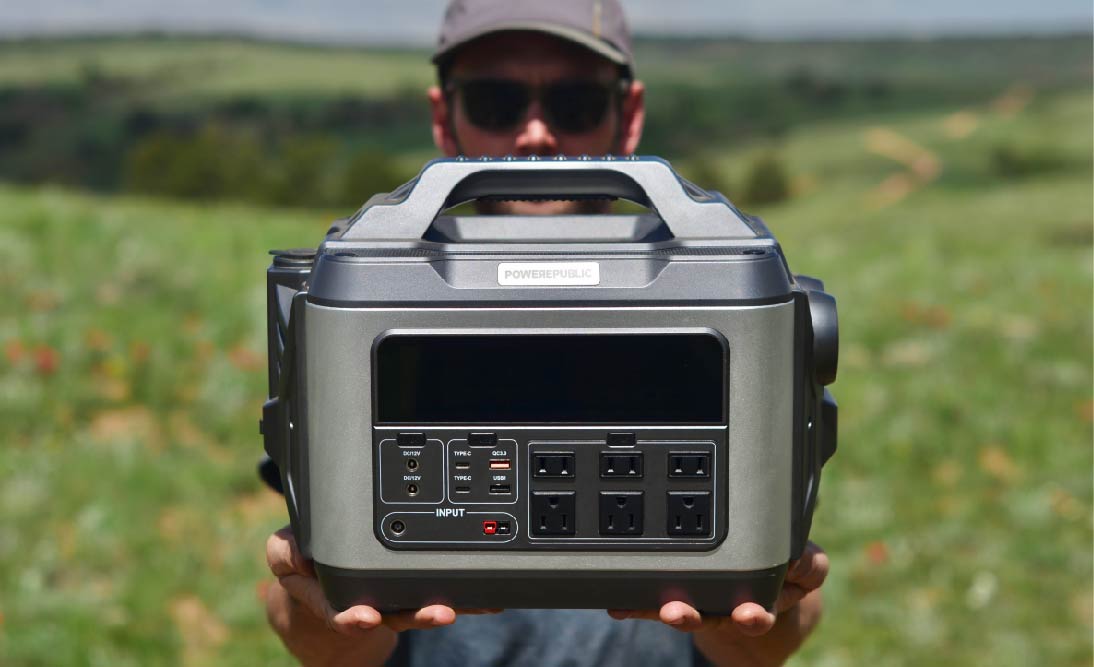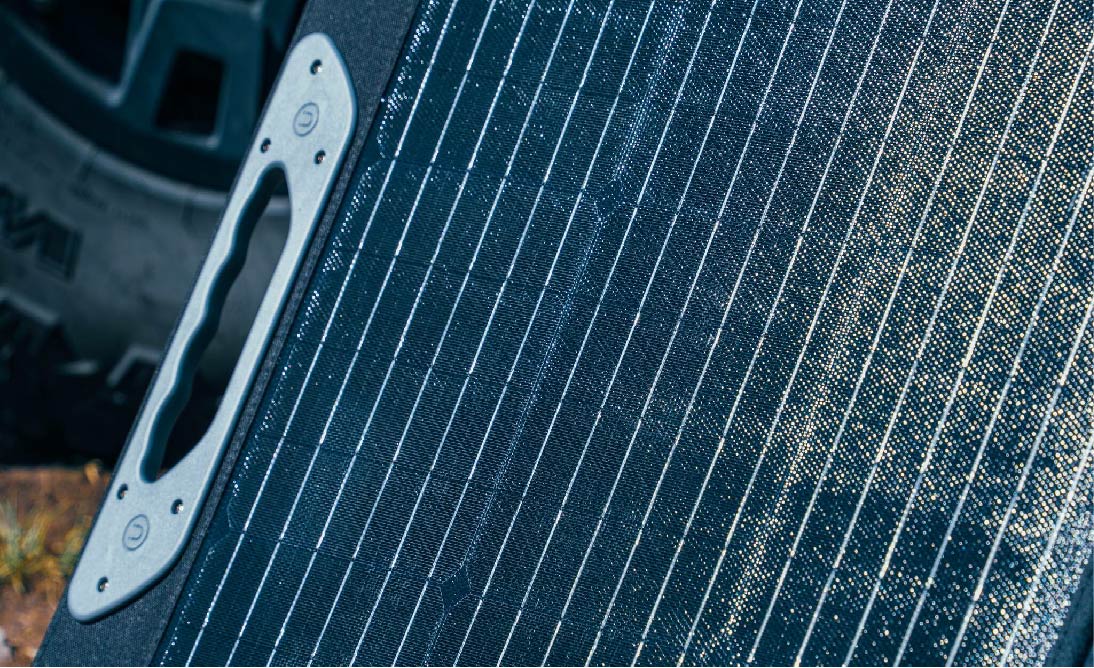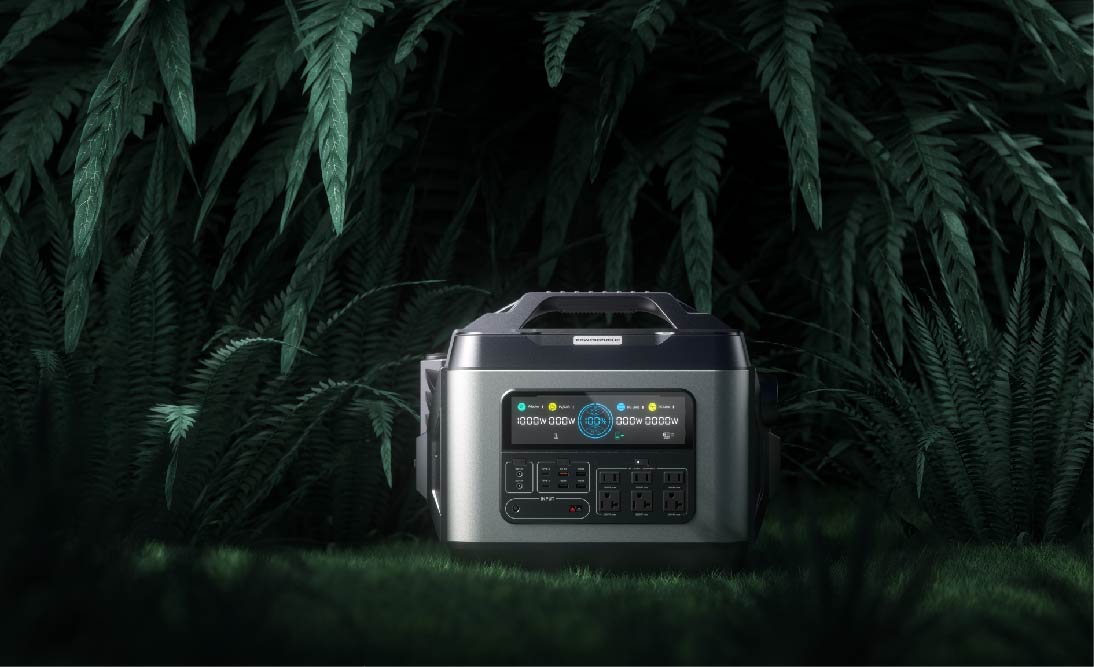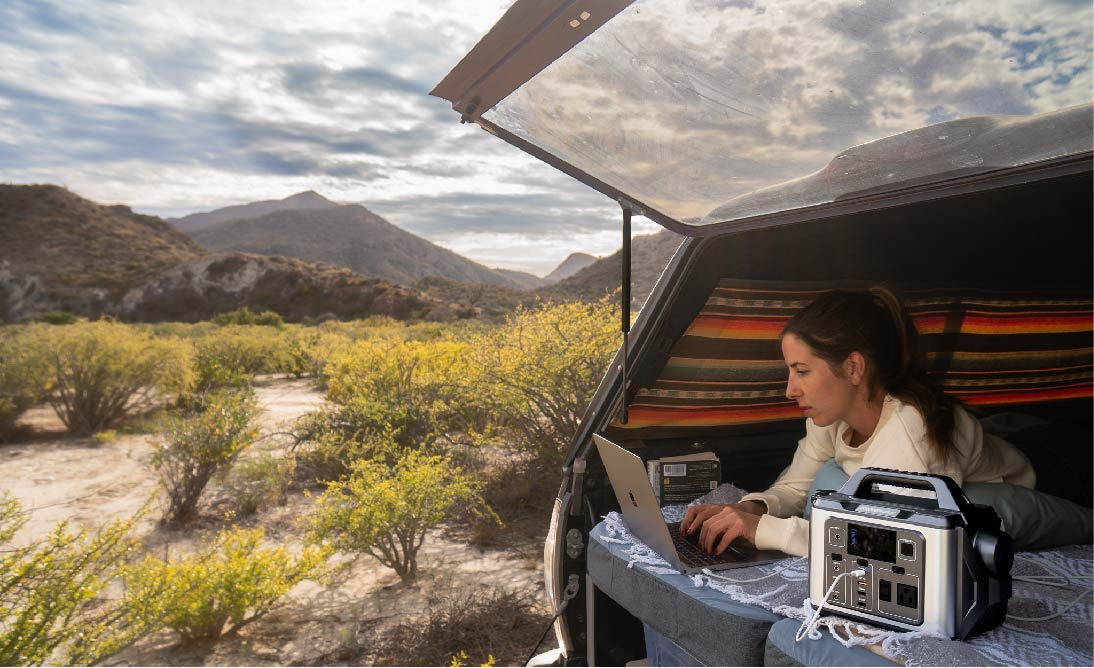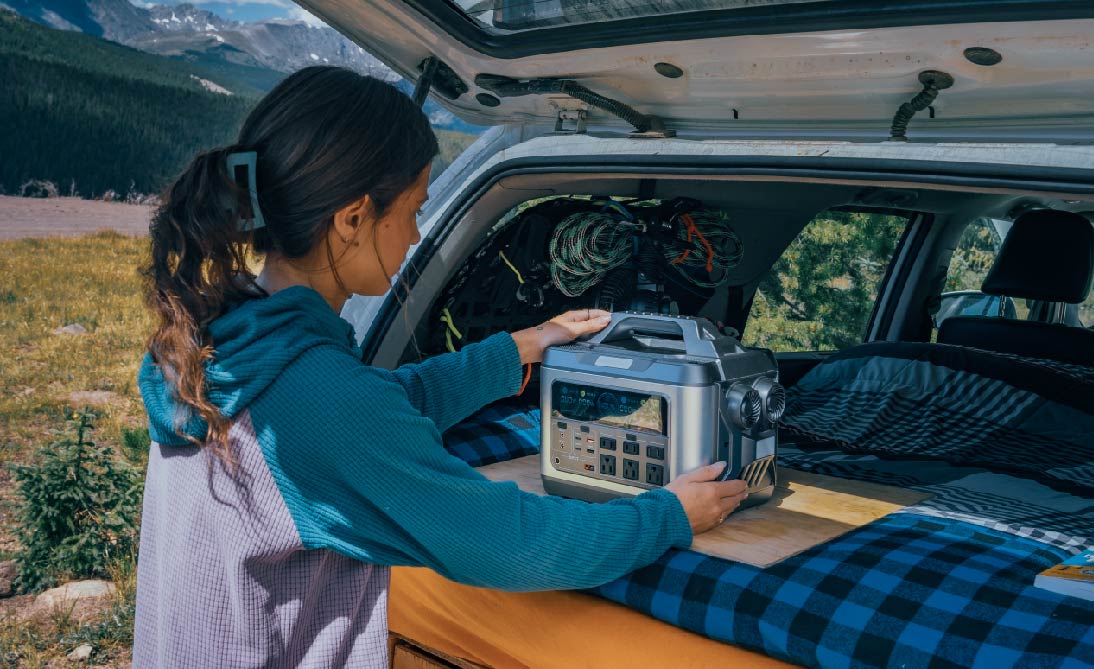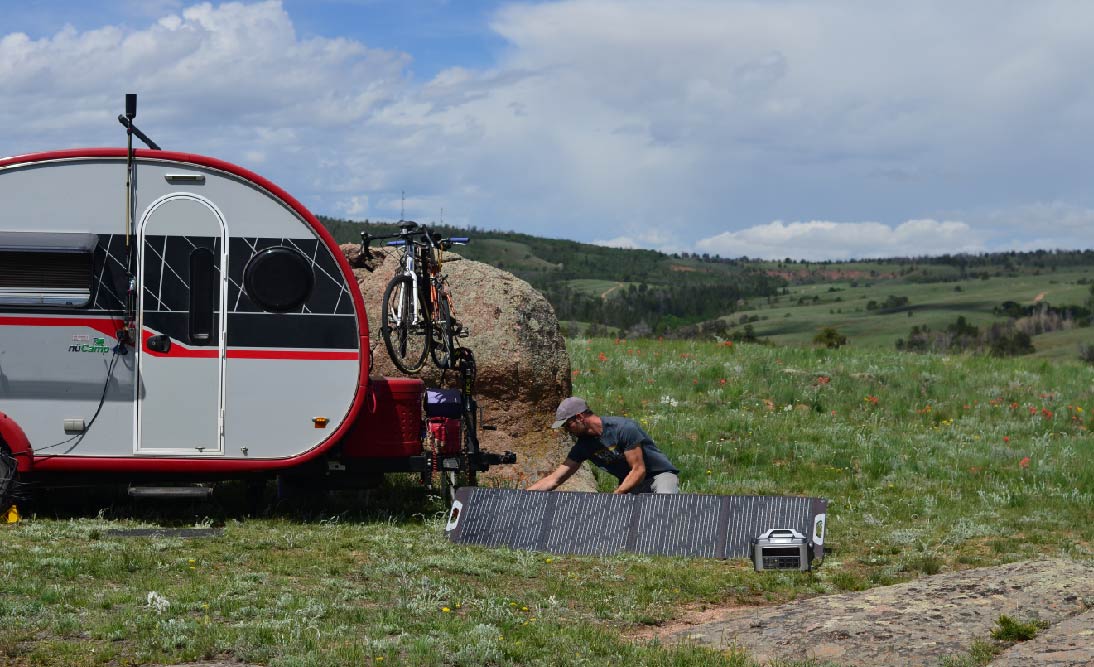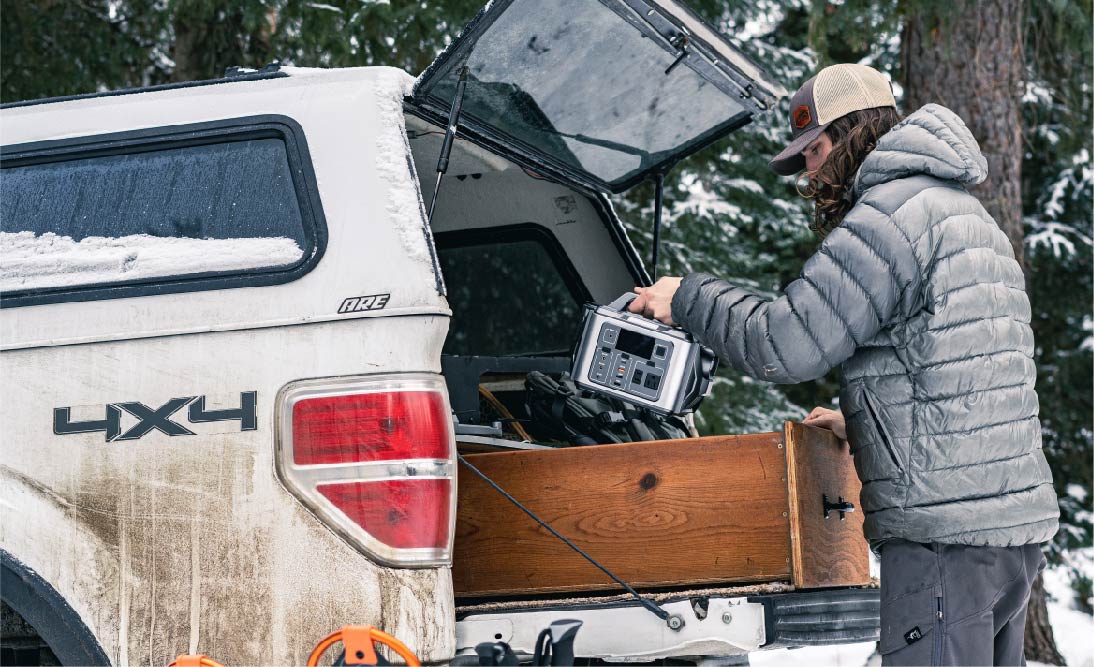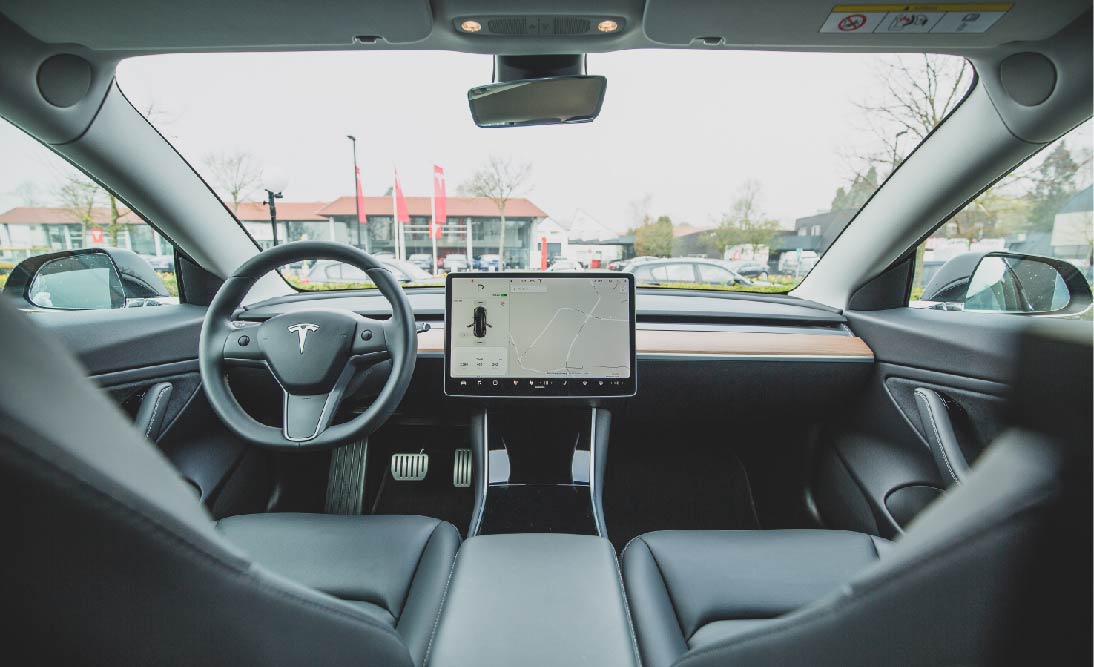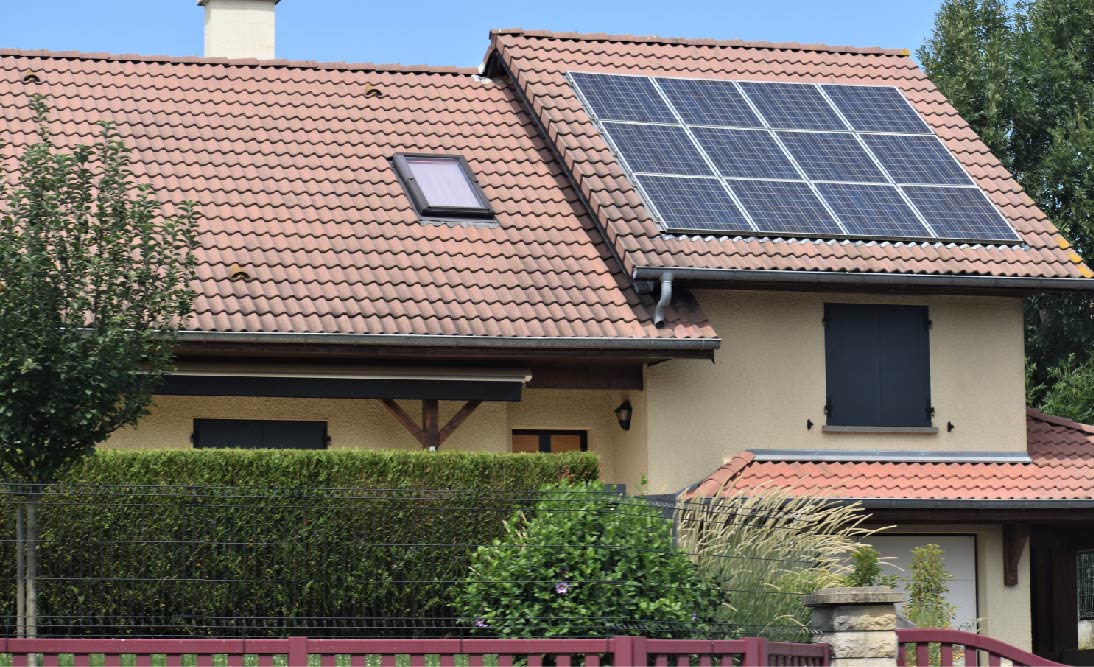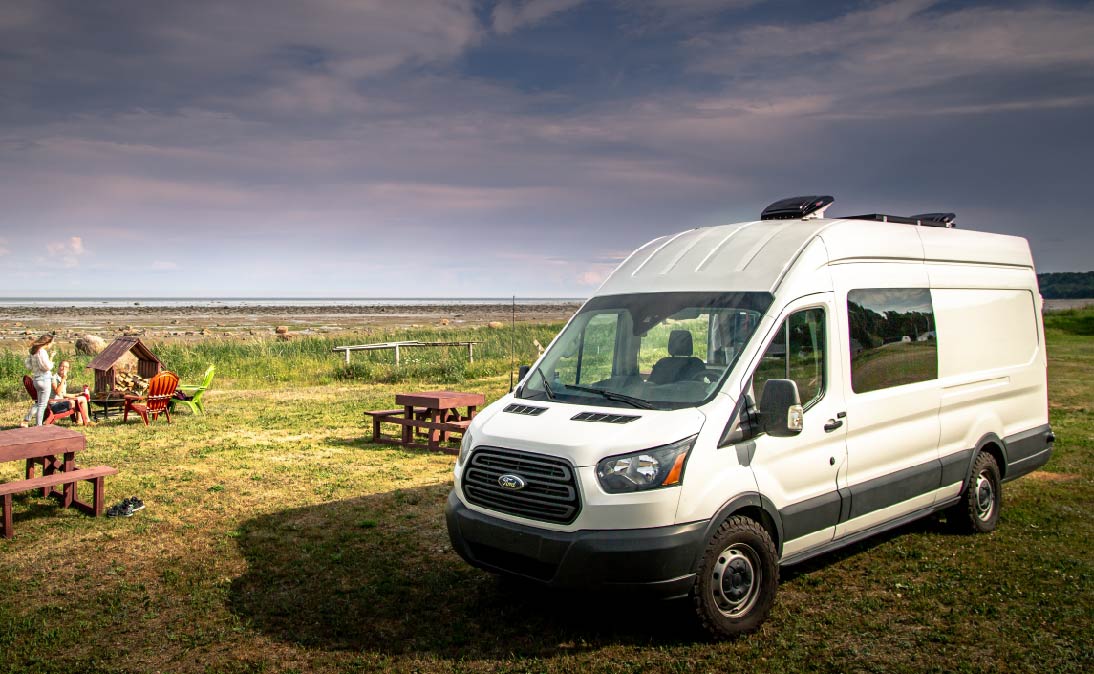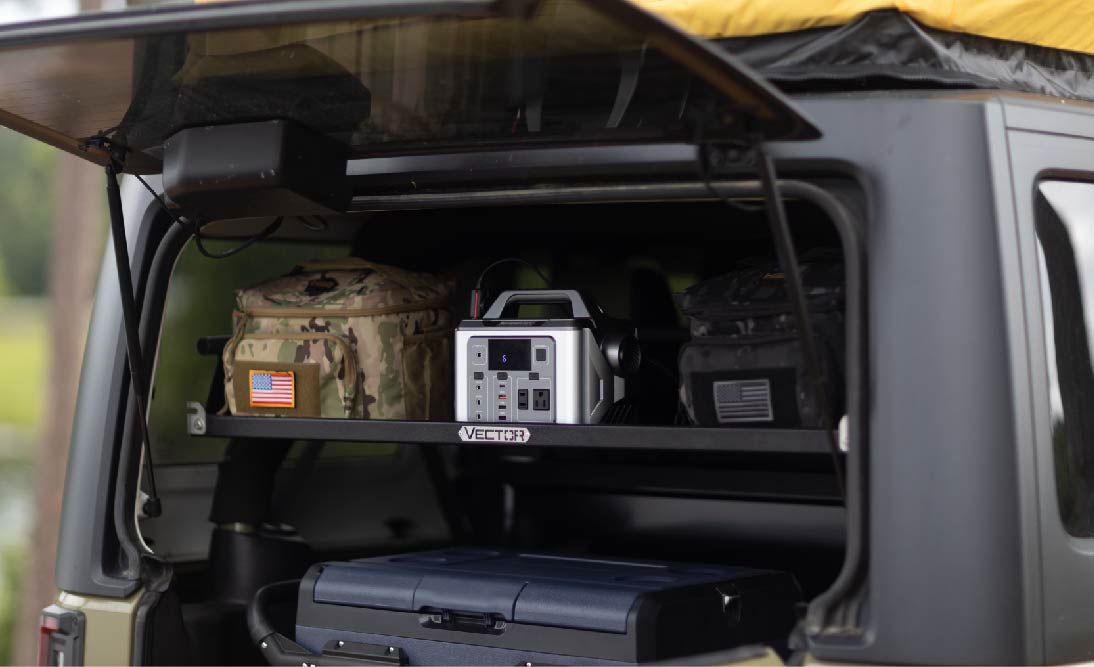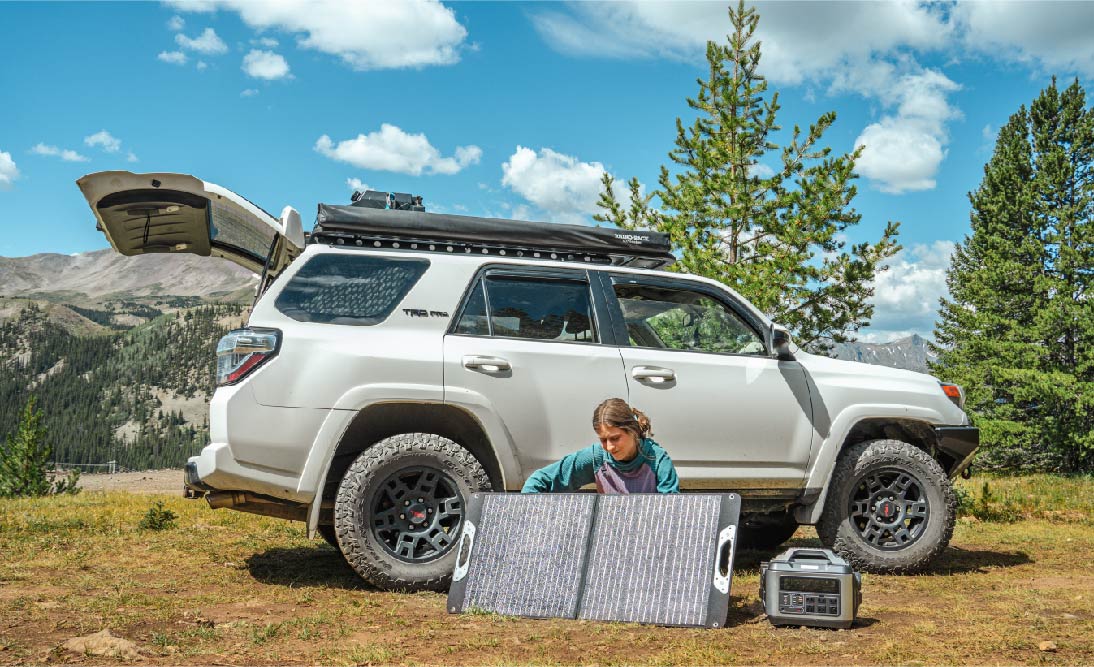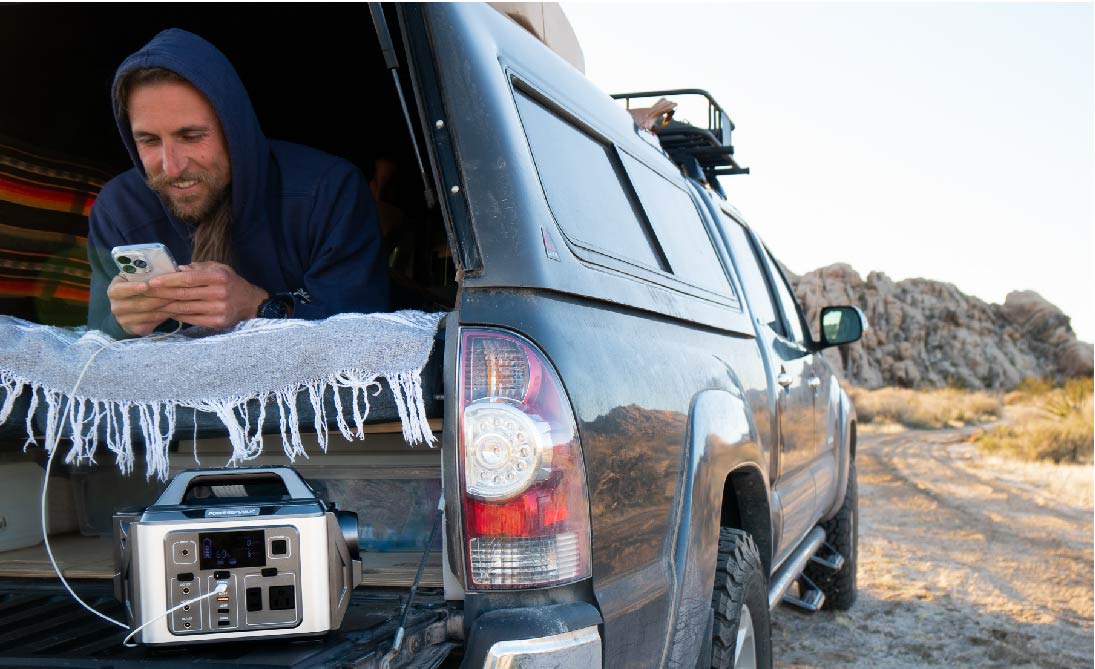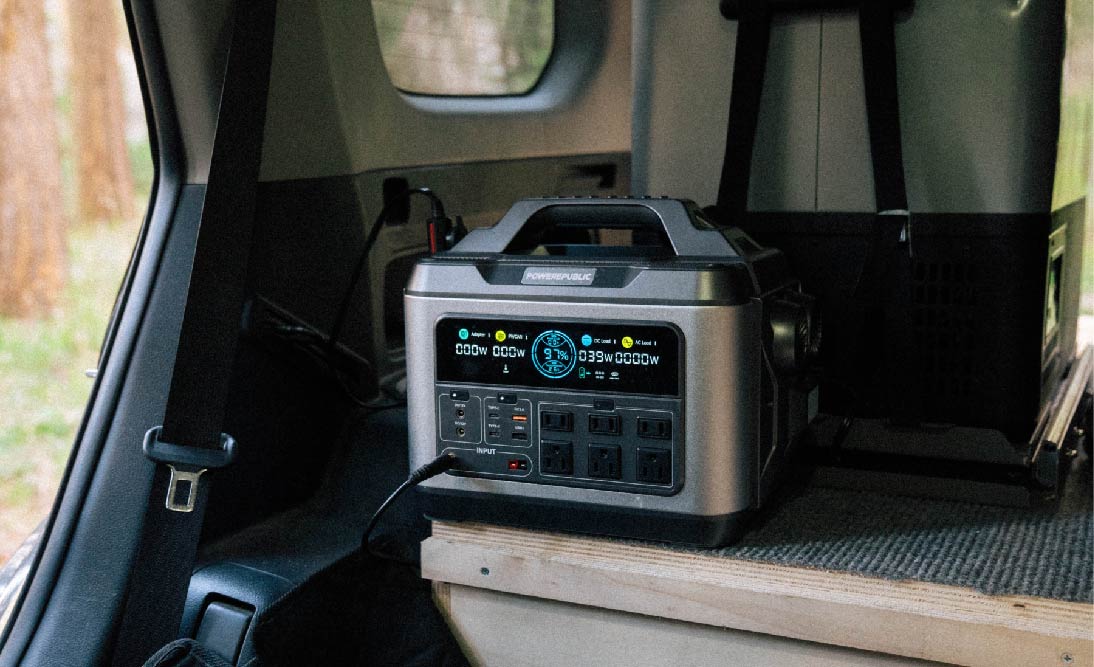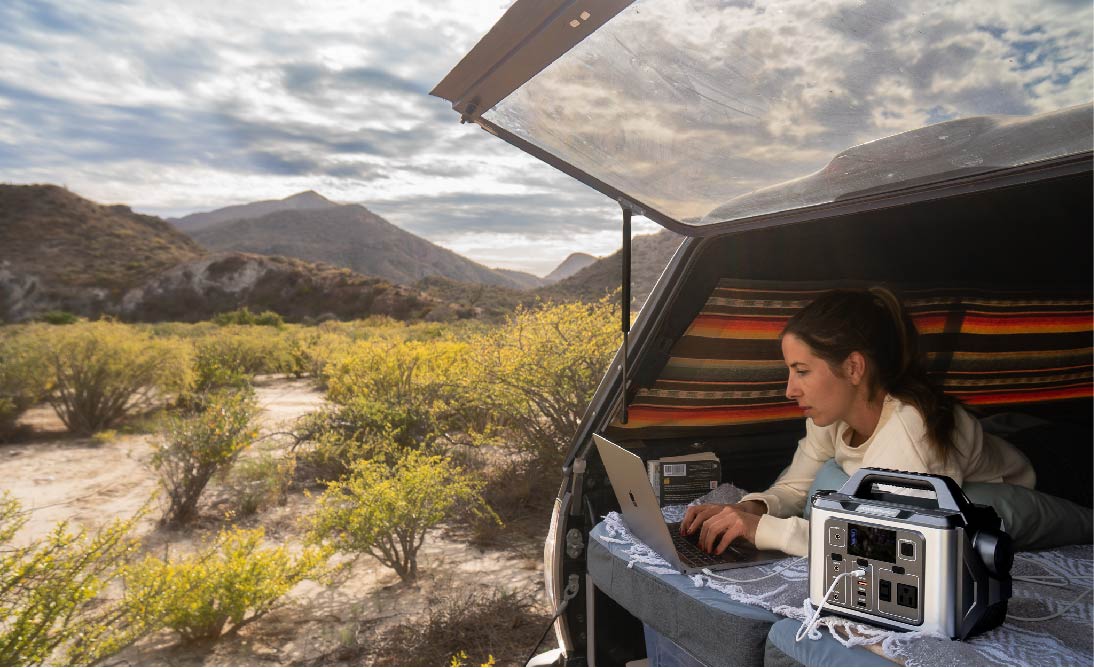Table of Contents:
-
How to Choose the Right-Sized Solar Powered Generator for RV?
-
FAQ I: What Size Solar Generator Do I Need To Run A Refrigerator and Freezer?
Many RVs have solar systems to keep devices and appliances charged while on the go. These systems usually combine a battery, solar panels mounted on the rooftop, an inverter, a charge controller, and other features. For campers and RVers seeking a secondary backup power solution, having a compact and convenient solar powered generator is crucial, especially during extreme weather or power outages.
In this guide, we will explore every aspect of solar powered generators for RVs and guide you in selecting the ideal options for your trips. So, let's dive into it!
Solar Powered Generator for RV Overview

What is a Solar Powered Generator?
A solar powered generator for an RV is an energy system or a compact device that uses solar panels to capture sunlight and convert it into electrical power. It typically includes:
-
Solar Panels: To capture solar energy.
-
Battery Storage: To store the converted electrical energy. Usually lithium-ion or LiFePO4 batteries.
-
Charge Controller: To manage the flow of electricity and protect the batteries from overcharging.
-
Inverter: To convert the stored direct current (DC) into alternating current (AC), used by most RV appliances.
This setup enables RV users to generate their electricity in an eco-friendly manner, which is particularly beneficial in remote areas lacking access to traditional power grids. An alternative arrangement involves pairing a portable power station with solar panels to create a solar generator kit, or a solar powered generator, serving as a backup power solution.
How Does a Solar Generator Work?
-
Sunlight Absorption: Solar panels absorb sunlight and convert it into DC electricity.
-
Electricity Storage: This electricity is then stored in batteries for later use.
-
Conversion to Usable Power: When power is needed, the inverter converts DC from the batteries to AC, suitable for powering RV appliances.
-
Energy Regulation: The charge controller ensures the batteries charge efficiently and prevents overcharging.
Cost Estimation: How Much is a Solar Generator?
The price of a solar powered generator for an RV can vary significantly based on factors like power capacity, quality, and additional features. Here are some rough estimations:
-
Entry-Level Systems: Around $300 - $800. Suitable for basic power needs like charging small devices or running a few lights.
-
Mid-Range Systems: Approximately $800 - $2,000. These systems can handle more extensive usage, such as powering small appliances.
-
High-End Systems: From $2,000 upwards. These generators offer significant power storage and output, are capable of running multiple appliances, including air conditioning units, and often come with advanced features like remote monitoring.
It's important to note that these are general estimates and the actual cost can vary based on brand, technology advancements, and regional pricing.
Benefits and Weakness of Solar Powered Generators for RV

Solar powered generators for RVs represent a significant shift towards sustainable and eco-friendly travel. These generators harness the sun's power to provide electricity, offering an alternative to traditional gas-powered units. Ideal for those who enjoy the RV lifestyle but are conscious of their environmental impact, solar generators are increasingly popular in the world of recreational vehicles. However, like any technology, they come with their own set of advantages and disadvantages.
Benefits of Solar Powered Generators for RVs
-
Eco-Friendly: They generate renewable energy, significantly reducing the carbon footprint compared to fossil fuel generators.
-
Cost-Efficiency: After the initial investment, solar generators incur minimal ongoing costs, eliminating the need for constant fuel purchases.
-
Quiet Operation: Solar generators operate silently, ensuring peace and tranquility during outdoor stays.
-
Energy Independence: They offer autonomy from grid power, invaluable for off-grid camping or in areas with unreliable electricity.
-
Low Maintenance: With fewer moving parts than traditional generators, solar generators typically require less maintenance.
-
Safety: They produce no harmful emissions and have a lower risk of fires or fuel spills, making them safer for use in confined spaces.
Weaknesses of Solar Powered Generators for RVs
-
Weather Dependent: Their performance relies heavily on sunlight, with reduced efficiency during cloudy or rainy conditions.
-
High Initial Costs: The purchase and installation of a solar generator can be expensive, although this is often offset by long-term savings.
-
Limited Power Supply: They may not provide as much continuous power as conventional generators, which can be a limitation for energy-intensive appliances.
-
Space Requirements: Installing solar panels requires sufficient space, which might be limited on some RVs.
-
Slower Charging: The batteries of solar generators charge more slowly compared to the quick refueling of gas generators.
-
Storage Capacity: The amount of stored energy depends on battery size, which might necessitate careful power management or additional investment for larger batteries.
How to Choose the Right-Sized Solar Powered Generator for RV?

Choosing the right-sized solar powered generator for your RV involves considering your energy needs, understanding the capacity of solar generators, and ensuring that the system you select can meet your demands. Here's a guide on how to make the right choice, including examples and calculations:
Step 1: Know Your Energy Needs
-
List Your Appliances: Note down all the appliances you'll use in your RV, like lights, fridge, air conditioner, TV, etc.
-
Calculate Power Consumption: Check the wattage of each appliance. This is usually listed on the appliance or in its manual.
-
Estimate Usage Hours: Determine how many hours per day you'll use each appliance.
Example:
-
Lights (10W) x 5 hours/day = 50Wh/day
-
Fridge (60W) x 24 hours/day = 1,440Wh/day
-
Air Conditioner (1,500W) x 4 hours/day = 6,000Wh/day
-
Total = 50 + 1,440 + 6,000 = 7,490Wh/day
Step 2: Determine Battery Capacity
Your solar generator's battery should be able to store enough energy for your daily needs, plus a buffer for cloudy days.
-
Calculate Daily Energy Needs: Add up the daily consumption of all appliances.
-
Include a Buffer: Add 20-25% more to your total as a buffer.
Example:
-
Total Daily Energy Needs: 7,490Wh/day
-
Buffer (25%): 1,872.5Wh/day
-
Total Required Battery Capacity: 9,362.5Wh/day
Step 3: Select Solar Panel Capacity
The solar panel capacity should be enough to recharge the battery daily.
-
Average Sunlight Hours: Find out the average sunlight hours per day in the area you'll be traveling.
-
Calculate Required Solar Panel Output: Divide the total required battery capacity by the average sunlight hours.
Example:
-
Average Sunlight Hours: 5 hours/day
-
Required Solar Panel Output: 9,362.5Wh / 5h = 1,872.5W
Step 4: Consider Inverter Size
The inverter should match or exceed the total watts of all appliances that might run simultaneously.
Example:
-
Simultaneous use: Air Conditioner (1,500W) + Fridge (60W) = 1,560W
-
Choose an inverter with a little higher capacity, like 2,000W.
Step 5: Check the Charge Controller
The charge controller manages the flow of energy from the panels to the battery. Ensure it's compatible with the system's voltage and has a higher amperage than your solar array's output.
Last but not least, consider factors like portability, durability, and brand reputation. Always round up your calculations to ensure you don't fall short on power. This guide provides a basic framework, but consulting with a solar energy expert for precise requirements is always recommended.
POWEREPUBLIC Solar Powered Generator for RV

From the discussion above, we understand that choosing the right-sized solar powered generator for your RV requires specific professional knowledge and time to ensure the best value for your investment. For campers and RVers seeking entry-level or more convenient options, consider the POWEREPUBLIC Solar Powered Generators for RVs.
POWEREPUBLIC offers four different combinations, but let's focus on the two most popular and practical combos for RVs. For a better understanding of these options, please refer to the table below.
|
Specs/Model |
POWEREPUBLIC T1200+PV100 & T1200+PV200 |
|
|
Capacity |
1110Wh |
2240Wh |
|
Ruuning & Peak Power |
Running: 1200W Peak: 2600W |
Running: 2200W Peak: 4500W |
|
Type of Battery |
Lithium-Ion |
LiFePO4 |
|
Output Ports |
13 |
15 |
|
Solar Input |
230W Max |
230W Max |
|
Charging |
AC Adapter, Solar Panel, Car Charger |
AC Adapter, Solar Panel, Car Charger |
|
Weight |
31Ibs/14Kg |
64Ibs/30Kg |
|
Measurements |
14.3*9.3*10.6 Inch |
18.3*11.8*12.2 inch |
|
Est.Duration(h) |
Duration(h)=Capacity(Wh) * 0.85 / The power of the item(W) |
|
|
LED Lights (10W) |
94 hours |
190 hours |
|
Smartphone Charger (15W) |
63 hours |
127 hours |
|
Laptop Charger (60W) |
15.5 hours |
31.5 hours |
|
Fan (75W) |
12.5 hours |
25 hours |
|
TV (120W) |
7.5 hours |
15.5 hours |
|
Coffee Maker (600W) |
1.5 hours |
3 hours |
|
Microwave (1000W) |
1 hour |
2 hours |
|
Hair Dryer (1200W) |
0.8 hours |
1.5 hours |
|
Toaster (1500W) |
0.6 hours |
1.3 hours |
|
Air Fryer (1700W) |
0.5 hours |
1.1 houors |
|
Air Conditioner (2000W) |
Not Applicable |
1 hour |
Note That:
-
The projected operating durations depend on the exact wattage of the devices being used and the present condition of the power station.
-
The purpose of this comparison chart is to highlight the distinctions between the T1200+PV100, T1200+PV200, and T2200+PV200 solar powered generators, concentrating on their capacities, potential for power output, and the length of time they can supply power to different devices.
FAQ I: What Size Solar Generator Do I Need To Run A Refrigerator and Freezer?

Answer: To determine the right size solar generator to run a refrigerator and freezer, you need to consider their combined wattage and runtime.
Example:
-
A typical refrigerator may require about 150W and run for about 8 hours a day (intermittently).
-
A freezer might need 100W and run similarly.
-
Total daily power usage: (150W + 100W) x 8 hours = 2,000Wh/day.
For a solar generator, you should consider a system with a battery capacity that can handle this load plus a buffer (about 25%). Thus, a generator with at least 2,500Wh to 3,000Wh capacity would be needed. Also, ensure the solar panels and charge controller can replenish this amount of energy daily.
FAQ II: Can a Solar Generator Power a Space Heater?

Answer: Space heaters can be challenging for solar generators due to their high power consumption.
Example:
-
A small space heater might use around 1,500W.
-
Running this heater for even 2 hours would require 3,000Wh of energy.
Most portable solar generators might struggle with this demand. You'd need a large, high-capacity solar generator, and even then, it might not be the most efficient use of solar power due to the high energy demand of space heaters.
FAQ III: Can a Solar Generator Power a House?

Answer: The ability of a solar generator to power a house depends on the house's energy needs and the generator's capacity.
Example:
-
The average daily energy use in a home might be around 30kWh.
-
A solar generator capable of supplying this must be quite large, with a substantial battery bank and solar array.
It's more practical for solar generators to power specific appliances or emergency backup rather than the whole house.
FAQ IV: Are Solar Generators Worth the Money?

Answer: The value of a solar generator depends on your energy needs, lifestyle, and the cost of alternative power sources.
-
For RV users or outdoor enthusiasts: They offer a clean, quiet source of power, particularly valuable where grid power is unavailable.
-
For home backup: They provide an eco-friendly backup option, though the initial cost can be high.
-
Cost-Benefit Analysis: Over time, they can be cost-effective due to low operational costs, despite the high initial investment.
Solar generators are an investment in sustainable energy, which can be worthwhile depending on your specific use case and commitment to renewable energy.
Final Thoughts
In conclusion, a solar powered generator for RV represents a significant step towards sustainable and eco-friendly travel, offering a reliable source of energy for those on the move. These generators not only reduce the carbon footprint but also provide cost-efficient, silent, and safe power solutions, especially valuable in remote or off-grid locations.
While they come with higher initial investment and are dependent on weather conditions, the long-term benefits and low operational costs make them a worthwhile choice for RV users, for example, POWEREPUBLIC solar powered generators. With the right sizing and understanding of your energy needs, a solar powered generator for an RV can effectively meet your electricity demands, providing peace of mind during your travels. Whether it's for basic power needs or running heavy appliances, these generators ensure energy independence and contribute to a greener planet, making them a valuable investment for both the environment and the adventurous spirit of RV enthusiasts.
